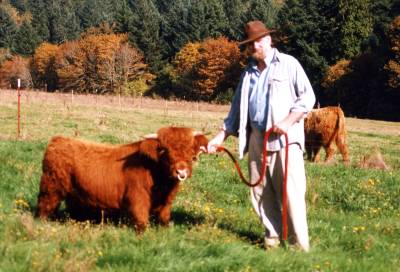
From Jalopnik:
There are still cowboys driving livestock across America in 2019. While most of us are snoozing, they’re rolling up to dark fields with trucks full of creatures that are critical to our nation’s agriculture: thousands and thousands of bees.
“Very few people know that this happens, and it happens as a necessity of the way our agriculture’s done,” Apiarist and filmmaker Peter Nelson explained to me. “I see bee trucks when I’m on the road, but most people don’t recognize them because it looks like a truck with boxes covered by a net.”
Nelson’s new movie The Pollinators is all about the bee industry, its huge role in our food system and the dire situation it’s in today. After months embedded with beekeepers documenting the complicated logistics of hauling bees from one end of the country to another, and years raising bees in his own backyard, he’s become something of an authority on the subject.
After watching his film myself, I have a whole new appreciation for this fascinating biological and economic ecosystem. I will now impart some of this wonder to you, before getting back to the part about trucks filled with bees driving down the highway at night.
Bees: We Fear Them, But We Must Love Them (Or We Starve)
Crops that make some of our favorite foods—almonds, broccoli, blueberries, avocados, apples—all need to be pollinated, and they’re pollinated by bees. But it takes armies of the insects to tend the immense commercial farms that get those foods to grocery stores. Since pollination only happens in certain seasons, it’s not practical for most farmers to stock and feed their own bees year-round. There definitely aren’t enough wild bees to get it done. And that’s why we’ve got a bee industry.....MORE
Wild and farm-raised bees have slightly different lifestyles, but they have a lot of the same problems. Wild bees have to contend with their feeding grounds being paved and plowed for crops they can’t eat. Bees that work for humans for a living are at risk of being poisoned by pesticides designed to protect the plants that the bees are hired to pollinate. And all of them can succumb to parasitic varroa mites. These are tiny bugs that ride on bees and drink their blood, identified by the USDA as one of a bee’s biggest threats....
City bees just seem to find out early
How to open doors with just a smile....